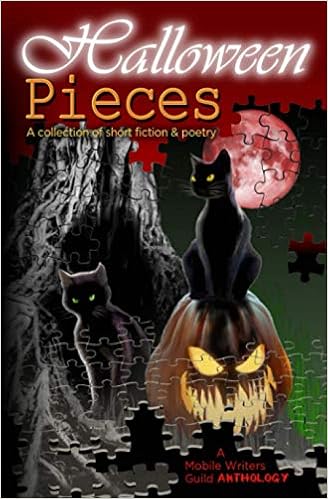cj Sez: Sending my congratulations and best wishes for
success to all the writers who accepted the NaNoWriMo challenge. (See more at
their websote here: NaNoWriMo)
I’m currently working
on a novel that now has 40K words….after years (true) of pecking away at it.
Obviously, I am not a candidate for the challenge, but I’ve got my fingers
crossed that all you writing warriors will carry through to the finish!
cj Sez: I’ve gone into my archives for the following post because I think it’s worth repeating for
all the new writers entering this publishing world. It may also be helpful for
the NaNoWriMo writers when they begin their editing process on December 1.
Having worked as a journalist for a few
years, I tend to write my first drafts sparsely—without much narrative. To justify my methodology, I
point to Kurt Vonnegut’s eight rules. In this case, specifically No. 4: “Every
sentence must do one of two things—reveal character or advance the action.” I
know what you’re thinking, and you’re right, rules are made to be broken.
However, some are best kept for a while, especially by yet-to-be-bestselling
authors, like me.
You can’t wait for inspiration. You have to go after it with a club. — Jack London
////
"QUESTION: WHAT IS DRAMA? DRAMA, AGAIN, IS THE QUEST OF THE HERO TO OVERCOME THOSE THINGS WHICH PREVENT HIM FROM ACHIEVING A SPECIFIC, ACUTE GOAL.
SO: WE, THE WRITERS, MUST ASK OURSELVES OF EVERY SCENE THESE THREE QUESTIONS.
1) WHO WANTS WHAT?
2) WHAT HAPPENS IF HER DON’T GET IT?
3) WHY NOW?
THE ANSWERS TO THESE QUESTIONS ARE LITMUS PAPER. APPLY THEM, AND THEIR ANSWER WILL TELL YOU IF THE SCENE IS DRAMATIC OR NOT.
[ *** ]
START, EVERY TIME, WITH THIS
INVIOLABLE RULE: THE SCENE MUST BE DRAMATIC. IT MUST START BECAUSE THE HERO HAS
A PROBLEM, AND IT MUST CULMINATE WITH THE HERO FINDING HIM OR HERSELF EITHER
THWARTED OR EDUCATED THAT ANOTHER WAY EXISTS. (cj: I think of his inviolable rule as the writer’s hooks at the
beginning and ending of scenes and chapters.) LOOK AT YOUR LOG LINES. ANY LOGLINE READING “BOB AND SUE DISCUSS…” IS NOT
DESCRIBING A DRAMATIC SCENE." (cj: They write loglines for every scene.)
cj Note:
A logline is a 25-word synopsis of your book.
A tagline is a catchy “movie poster” phrase.
Examples for Jaws –
Logline – After a series of grisly shark attacks, a sheriff struggles to protect his small beach community against the bloodthirsty monster, in spite of the greedy chamber of commerce. (from J. Gideon Sarentinos http://bit.ly/1D90FmH (25 words not counting "a" or "the".)
Tagline – Don’t go in the
water.
You can read David Mamet’s entire memo at:
http://movieline.com/2010/03/23/david-mamets-memo-to-the-writers-of-the-unit/
Okay, let me know if what you think. Agree? Disagree? Helpful with what you’re working on?
Tis ALMOST the season, but spreading cheer is always a good thing—especially when it’s a two-fer, and you’re actually helping out a charity, too.
The first two Bienvenue Press Christmas charity anthologies are on sale digitally for the entire month of November. Take advantage of the sale prices to stock your E-reader for December and beyond.
HOMETOWN HEROES benefits the Cajun Navy Relief & Rescue
FINALLY HOME helps regional animal rescue programs
Both are available on Amazon (free on Kindle Unlimited)
A logline is a 25-word synopsis of your book.
A tagline is a catchy “movie poster” phrase.
Logline – After a series of grisly shark attacks, a sheriff struggles to protect his small beach community against the bloodthirsty monster, in spite of the greedy chamber of commerce. (from J. Gideon Sarentinos http://bit.ly/1D90FmH (25 words not counting "a" or "the".)
http://movieline.com/2010/03/23/david-mamets-memo-to-the-writers-of-the-unit/
////
Tis ALMOST the season, but spreading cheer is always a good thing—especially when it’s a two-fer, and you’re actually helping out a charity, too.
The first two Bienvenue Press Christmas charity anthologies are on sale digitally for the entire month of November. Take advantage of the sale prices to stock your E-reader for December and beyond.
HOMETOWN HEROES benefits the Cajun Navy Relief & Rescue
FINALLY HOME helps regional animal rescue programs
Both are available on Amazon (free on Kindle Unlimited)
////
(P.S. Several
of the authors have signed a limited supply of copies available from The
Haunted Bookshop (see where to order below).
////
cj
The store has re-opened to limited hours, so if you’re in the Mobile area, you can stop and shop, too.
➜ Follow me . . .
➜ on Amazon: Amazon
Central Author Page = https://amzn.to/2v6SrAj
➜ on Facebook:
https://www.facebook.com/CjPettersonAuthor
➜ on BookBub:
https://www.bookbub.com/authors/cj-petterson
➜ on Goodreads: https://bit.ly/3fcN3h6




I don't do NaNo either. My hands aren't built for that kind of typing. I'd be having surgery mid-way through November every year.
ReplyDeleteI like your quotes. I try to apply the same things, only I use the word tension for drama.
cj Sez: I strongly believe in 'hooks'...though I'm not that good on remembering to put one at the beginning of a chapter. Tension is a good word. (Drama seems so melodramatic. hee hee). Thanks for stopping by and for the comment, Kaye. Stay well.
DeleteThanks! You stay safe, too.
Delete